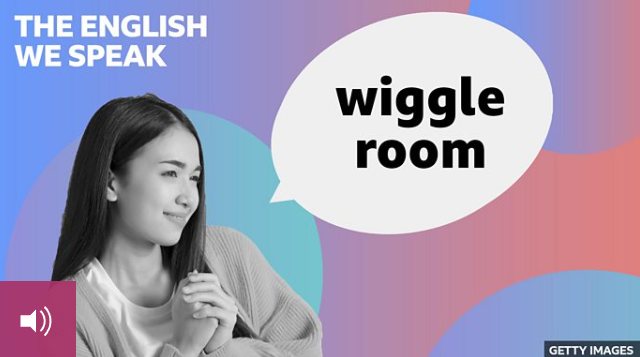Introduction
Sometimes things are just too expensive, and we have to see if there’s any way we can afford it by changing our budget. Well, that’s what happened to Feifei in this episode. We can tell you an English phrase to help you explain that.
Transcript
Feifei
This is The English We Speak with me, Feifei…
Neil
…and me, Neil. Wow, Feifei, you look really busy. Do you need any help?
Feifei
No, thanks. I’m just looking at prices for the BBC Learning English team dinner. I was thinking about going to that fancy restaurant near the office!
Neil
Brilliant! I’ve been wanting to try that place. It looks amazing.
Feifei
Well, you might not have to wait too longer. It’s really expensive and we can’t afford it
Neil
Oh. Have you asked the boss to see if the budget can be increased so we can go?
Feifei
Good idea! I’ll see if there’s any wiggle room on the amount of money we can spend!
Neil
I’m sorry, what? Wiggle room?
Feifei
Yes. We use the expression ‘wiggle room’ to talk about how much we can change something like a timetable or budget to allow us to do something else. So, I want to see how likely it is we can get a bigger budget.
Neil
Great – well, good luck with that. We’ll listen to some examples while you make the call.
Examples
The company had no more wiggle room in the marketing budget to employ new actors.
I’m afraid I don’t have much wiggle room in my schedule to meet you today.
How much wiggle room do we have on the salary we’re offering? He’s demanding more money.
Feifei
In this programme, we’re learning about the expression to ‘wiggle room’ which is an expression we use to talk about the level or degree to which something can be changed to allow us to do something else.
Neil
And tell me, Feifei – was there any wiggle room in the budget for us to go to the restaurant?
Feifei
I’m afraid not. I’m going to start looking for a cheaper restaurant!
Neil
OK, Good luck with that!
Feifei
Thanks. Bye!
Neil
Bye!
